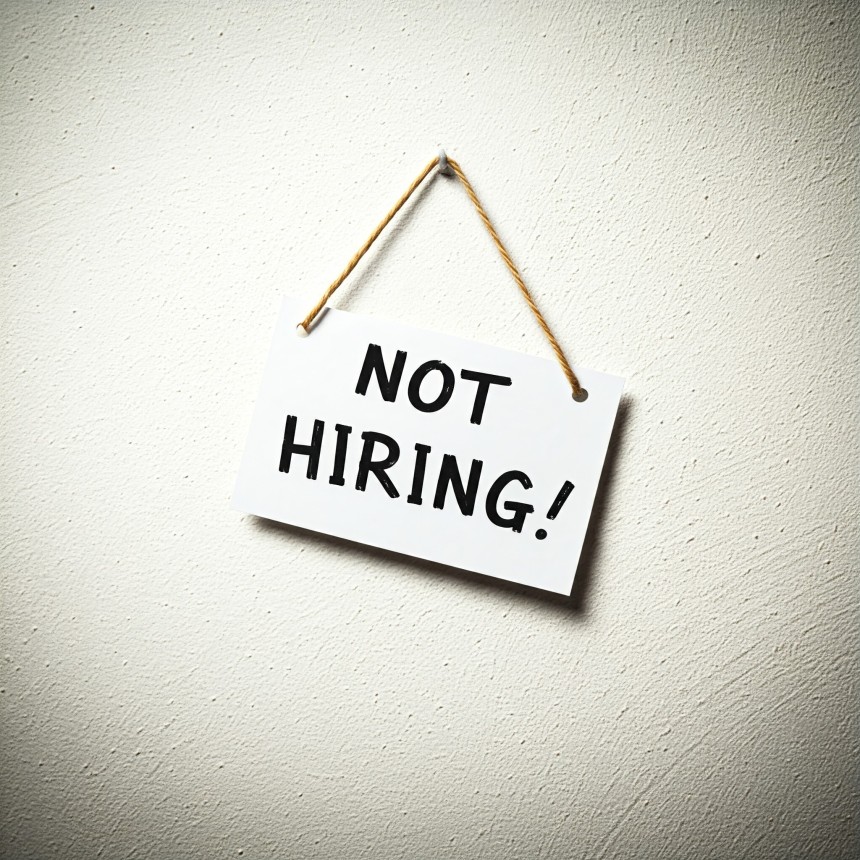
8 Mistakes High Income Earners Make
Reaching a high income is a major financial milestone, but with greater earnings often comes a new set of challenges. Many high-income earners fall into common traps that can sabotage their wealth-building potential and financial stability. These mistakes can prevent even the wealthiest individuals from achieving long-term financial freedom. In this post, we’ll dive into 8 key mistakes high-income earners often make—and more importantly, how you can avoid them to ensure your financial success.
1. Golden Handcuffs

Being tied to "golden handcuffs" is probably the mistake that cost people the most years, and it’s one of the most common mistakes people make. Golden handcuffs refer to when a company pays you so well that you end up sidelining what you really want to do. They pay you just enough to make you forget your dreams, your path, and your vision.
Example: Take David, for example. When he started his job in banking, he was making $35,000. At the time, if he wanted to pursue his own venture or change career paths, he felt he would need to earn the same amount to justify the move. He explored a few alternative careers, but he was so comfortable where he was that he continued down the same path.
A few years later, David was earning six figures. By this point, he didn’t enjoy his job anymore. He considered switching careers, applying for other jobs, or even starting his own business. But as soon as he explored these options, he quickly realized that he wouldn’t be able to maintain the same level of income doing something else. So, he buried those feelings and kept working.
Each year brought another raise, a promotion, and a bigger bonus. With each passing year, the golden handcuffs tightened. Nine years into his corporate career, David finally stepped back and thought, “I actually hate what I do.” Despite earning a good salary, he didn’t have the time or freedom to enjoy it. He had very little control or autonomy over his life, and his relationships were suffering because he was always unhappy.
It took reaching that breaking point for David to realize that he had the keys to unlock the golden handcuffs all along. The lesson here is this: Sometimes, when you’re used to earning a lot of money, it can be tempting to stay on the same path. But don’t let the fear of losing what you have prevent you from pursuing what you truly want. Don’t let complacency take root if you aren’t happy with where you are.
2. Dependent on One Income Stream
When someone is making a lot of money from one income stream alone, it's very easy to double down on it and become overly reliant on it. Up until six years ago, they might have been entirely dependent on their day job income. Everything—their life, apartment, car—would have disappeared if they had lost that job, placing them in a vulnerable position.
It’s easy to rely on just one source of income and assume it will keep providing. While it’s important to focus on maximizing income, moving jobs, negotiating better pay, and seeking promotions, it’s equally crucial to establish other streams of income. People need to work on something on the side—whatever it takes—to avoid depending solely on one income stream. Relying on only one stream of income is too close to having none.
There are many ways to earn extra money outside of a 9-to-5 job, but it requires some creativity. For anyone looking to start a side business, it's essential to understand market potential, competition, and who the potential customers are from the start.
3. Waiting too long to Invest

The third biggest mistake I see high earners make is waiting too long to start investing. According to a 2019 report by UBS Investor Watch titled Billionaires Insights, as a person’s wealth increases, so does their reluctance to spend or invest due to the fear of losing what they’ve worked so hard to accumulate. The report found that over 60% of high-net-worth individuals suffer from decision paralysis.
People, especially at that wealth level, tend to keep their money in a bank account because it feels safe—particularly if they haven’t become familiar with the idea of investing. Once you have an emergency fund and have paid off your high-interest-rate debt, you need to start making the rest of your money work for you.
The problem a lot of high earners have is that because they haven’t developed the habit of investing, they end up with a lump sum they’re ready to invest but are too scared to do anything with it. Their emotions take over, and they don’t want to risk losing it. They continue waiting and waiting until they think it's the best time to enter the market.
However, if you invest $200 a month for 30 years at an average market return of 8%, you can expect to have a pot of over $270,000. On the other hand, if you wait until you have more money to invest, say $1,000 a month but only have 10 years to invest it with the same return, you’ll end up with less—just over $170,000.
Even though many people have enough money to start investing, they fall prey to the myth that they need more to get started. By the time they do have enough, they end up being too scared to invest it because they fear losing it.
In my view, aside from the money allocated for your emergency fund, for important purchases, or for investing in your learning or side business, the rest should be parked away in a low-cost index fund as soon as possible.
4. Working Too Much

Another common money mistake is working too much. There's a book written by an Australian nurse who recorded the top five regrets of dying patients that she cared for in the final weeks of their lives. Their number one regret was: "I wish I had the courage to live a life true to myself, not the life others expected of me." The second was: "I wish I hadn’t worked so hard."
Money is a huge part of our lives; it touches many elements of our day-to-day existence and unlocks countless opportunities. However, there comes a point where the pursuit of more money at the cost of other important aspects of life becomes problematic. Spending time with people you love, taking time to enjoy life, and using the money you earn for experiences that bring happiness—that’s the true essence of wealth.
When the scale tips toward working endlessly just for the sake of making more money, even though other things might bring you more joy, it’s time to adjust your focus and tip the scale back in favor of what truly matters.
5. Ruining Relationships
The next money mistake is ruining relationships because of money. A 2018 TDM Trades survey found that 53% of Millennials said it would be "worth it" to go into credit card debt if it meant they could attend the wedding of a close friend or family member. We live in a society where it's almost expected to attend someone’s wedding, bachelor, or bachelorette party, even if it means going into debt.
However, not everyone shares the same financial priorities, and assuming otherwise can damage even the strongest of friendships. In my own circle of friends, I have some who openly acknowledge they've chosen careers that don’t pay well because they’re driven by passion and service—they don’t care much about the money. On the other hand, there are friends who admit they’re only working for the paycheck and have zero passion for their jobs.
To maintain a genuine friendship with people from different financial backgrounds, it’s important to be mindful that not everyone has the same priorities when it comes to money. Just because one person wants to eat out at a fancy restaurant doesn’t mean everyone else does—or that they can afford it. Similarly, if one person can afford an extravagant destination bachelor or bachelorette party, that doesn’t mean everyone else can.
If you want to maintain genuine, authentic relationships, you can’t let money—or the lack of it—define your connections. It’s the shared experiences, mutual understanding, and respect that form the foundation of true friendships, not the size of a bank balance.
6. Not spending money
Not allowing yourself to spend can be a challenge, even when you have the means. There are people with hundreds of thousands in the bank who still struggle to spend their money joyfully. After years of scrimping, saving, and counting every penny, it can be hard to break the habits that got you there. Even after achieving financial security, the idea of spending money on yourself for fun or enjoyment can seem foreign. This requires a mindset shift—from one of scarcity to one of abundance.
One way to address this is by implementing a "fun budget" in your financial tracker. This is essentially a "must-spend" percentage of your income. You should allocate 20% of your monthly income to anything you want—activities, experiences, dining out, clothes, or anything else. This way, you can still enjoy life while pursuing your larger financial goals. It’s not about choosing one over the other.
Remember, the hard work and frugality that helped you accumulate wealth don’t have to define your spending habits forever. It’s okay to let go and enjoy the money you’ve earned.
7. Not Giving Money Away

There are countless studies that show once you earn enough money to cover your basic needs, any additional income after a certain threshold doesn’t significantly increase your happiness. Despite many people knowing this, we often don’t consider how else we can use our money to make ourselves feel good—we just keep spending on ourselves.
What I’ve found is that, out of all the things I’ve spent money on, the area that brings me the most happiness, joy, and fulfillment is spending on others or giving money away in some way. Giving money can mean different things to different people. Maybe it’s paying for your mom’s operation so she’s in less pain, covering your grandma’s electricity bill every month so it’s affordable for her, or donating to the animal shelter down the road that you’ve always wanted to support.
Helping others, even in small ways, will not only make you feel good about yourself but also benefit those in need. It’s literally a win-win. I truly believe that the more you give away what has come to you, the more the universe will give you in return because it recognizes that it’s in the hands of someone using it for good.
8. Not hiring accountant or a lawyer

Not hiring an accountant or a lawyer when you have a sizable amount of money. It’s easy to keep thinking the same way you did before making a lot of money, which may lead to cutting corners. You might skip hiring an accountant, or instead of hiring a lawyer, you might ask ChatGPT to draft a contract for you.
However, as more money becomes involved, spending more in these areas to protect yourself and your wealth will save you much more than it will cost. The more money you have, the more you have to lose. Hiring a good accountant and a good lawyer are two of the most important investments you can make once you’ve built wealth.
________________________________________________________Thank you !





